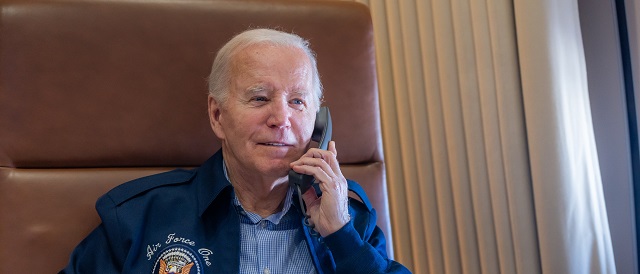Energy
A carbon tax by any other name
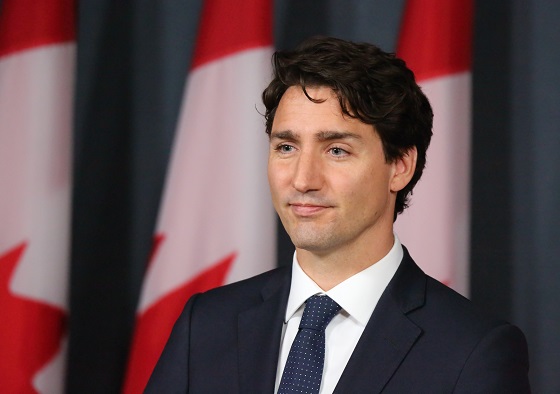
From Canadians for Affordable Energy
Written By Dan McTeague
It turns out that the story circulating last week from The Toronto Star that the Liberals were considering a “rebranding” of their Carbon Taxation program was true. On Wednesday the Liberals announced that the previously known “Climate Action Incentive Payment,” will now be referred to as the “Canada Carbon Rebate.” This was done “in an attempt to tackle what it calls confusion and misconceptions about the scheme.”
According to Liberal Minister Seamus O’Regan “If we can speak the language that people speak, because people say the words ‘carbon,’ they say the words, ‘rebate,’ right? And if we can speak that language, that’s important, so people understand what’s going on here.”
The Liberals seem to actually believe that the problem Canadians have with the carbon tax, and their growing support for Pierre Poilievre’s Conservatives to “Axe the Tax,” has simply been a matter of Canadians not “understand[ing] what is going on.”
The implication, of course, is that Canadians aren’t really struggling to pay their bills, feed their families and heat their homes right now. That their lives haven’t gotten more expensive overall as the cost of fuel has risen steadily.
That they’re just confused by poor branding — probably some high-priced marketing firm’s fault, really — and that once Trudeau & Co. find the right words, people will finally be happy to pay the tax, and be grateful to get some of their money back, since doing so will — somehow — save the planet.
Which is ridiculous.
It’s worth pointing out that this isn’t even the first time Trudeau’s carbon tax has been rebranded. You might recall that prior to 2018, the scheme was referred to as “carbon pricing” or simply the “carbon tax.” If you look back at Hansard records — the records of Parliamentary debate — you can see that in October 2018, Liberal MPs began referring to the scheme as a ‘price on pollution.’ Of course, calling carbon dioxide, a gas on which all life on earth depends, “pollution” was an obvious attempt to justify taxing Canadians for it.
But no matter what they call the thing, they are determined not to let it go.
Recent polls have indicated that the carbon tax is losing support from Canadians. A Nanos poll showed nearly half of Canadians think the carbon tax is ineffective; another poll indicates most Canadians want it reduced or killed altogether.
So why are the Liberals clinging so desperately to this tax that Canadians don’t support? Going so far as to rebrand, reframe, recommunicate rather than scrap it?
I might start to sound like a broken record here, but the only way to understand the context of the carbon tax, the second carbon tax (the Clean Fuel Standard,) an emissions cap, electric vehicle mandates and on and on, is to recognize that they are all components of the insane Net-Zero-by-2050 scheme dreamed up by Justin Trudeau and his UN and World Economic Forum cronies.
A carbon tax is simply one of the pillars of their Net Zero Agenda which they contend will enable Canada to achieve this nebulous goal of Net Zero emissions by 2050.
Though apparently to achieve it, the tax will need to get progressively more punishing. On April 1 the carbon tax goes up another $15, to $80 per ton, and will continue to rise yearly until it hits $170 a ton in 2030. Canadians are already feeling the pinch and it is hard to imagine it getting worse. But Liberals aren’t concerned with the struggles of everyday people and that is the reality. This has become a communications issue to them, not an existential one.
As to the new name itself, the Trudeau Liberals love to pay lip service to their rebate scheme and claim that Canadians are getting back more than they pay. But as we well know even the Independent Parliamentary Budget Officer found that, contrary to what their talking point, a substantial majority of households are paying more in carbon taxes than they get back.
Their communications plan too is so unhinged that they are pitching the carbon tax as an affordability measure designed to help struggling Canadians. Of course this begs the question: If Canadians are getting back more than they pay in carbon taxes, why take the money in the first place?
The rubber is hitting the road and Canadians have had enough. No matter what it’s called, the carbon tax has made our lives worse.
That will continue to be true, no matter what they call it.
Dan McTeague is President of Canadians for Affordable Energy
Energy
Pope Francis calls for ‘global financial charter’ at Vatican climate change conference
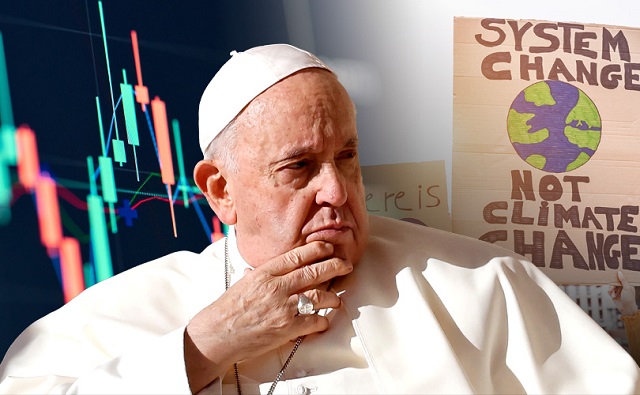
From LifeSiteNews
By Michael Haynes, Snr. Vatican Correspondent
Pope Francis called for a ‘new global financial charter’ by 2025 which would be centered on climate change and ‘ecological debt’ in a keynote address at the Vatican-organized ‘Climate Crisis to Climate Resilience’ conference.
Addressing a Vatican-hosted climate change conference, Pope Francis called for a “new global financial charter” by 2025 which would be centered on climate change and “ecological debt.”
“There is a need to develop a new financial architecture capable of responding to the demands of the Global South and of the island states that have been seriously affected by climate catastrophes,” said Pope Francis on Thursday, May 16.
The Pontiff’s words came towards the end of his keynote address at the conference “Climate Crisis to Climate Resilience,” organized jointly by the Vatican’s Pontifical Academy of Sciences and Pontifical Academy of Social Sciences.
JUST IN: #PopeFrancis urges @CasinaPioIV climate change conf to work for “global de-carbonization” adding: “The data emerging from this summit reveal that the specter of climate change looms over every aspect of existence, threatening water, air, food and energy systems.”… pic.twitter.com/t7cV4ne0s4
— Michael Haynes 🇻🇦 (@MLJHaynes) May 16, 2024
Outlining a three-fold action plan to respond to the “planetary crisis,” Francis told the participants that any such action must be centered around financial action.
“The restructuring and reduction of debt, together with the development of a new global financial charter by 2025, acknowledging a sort of ecological debt – we must work on this term: ecological debt – can be of great assistance in mitigating climate changes,” he said, appearing to allude to an already existing, but as yet unpublished, charter.
The Pope’s three-fold plan also highlighted his call for “policy changes” based on climate adherence and the reduction of warming, fossil fuel reliance, and carbon dioxide:
First, a universal approach and swift and decisive action is needed, capable of producing policy changes and decisions. Second, we need to reverse the curve of warming, seeking to halve the rate of warming in the short space of a quarter of a century. At the same time, we need to aim for global de-carbonization, eliminating the dependence on fossil fuels.
Third, large quantities of carbon dioxide must be removed from the atmosphere through environmental management spanning several generations.
Francis’ call for finance-related policies to implement climate change goals will have been met especially warmly by certain attendees of the Vatican’s conference. Among the numerous participants and speakers at the three-day event were ardent pro-climate change advocates California Gov. Gavin Newsom, London’s Mayor Sadiq Khan, New York Gov. Kathy Hochul, Massachusetts’s lesbian Gov. Maura Healey, along with academics and politicians from South America, Africa, Italy, and Taiwan.
Newsom and Khan – both of whom have implemented sweeping and highly controversial measures in the name of climate change – spoke respectively on “The Gold Standard – Climate Leadership in the Golden State” and “Governance in the Age of Climate Change.” Khan also wrote in the U.K.’s The Tablet that he joins his voice to that of Francis “to support climate resilience efforts and advocate for climate justice.”
Green finance for the future
While no further details were given about the charter Pope Francis referred to, in recent years increased attention has been paid to coordinating climate policies with finance, performing “debt for nature swaps” in line with the World Economic Forum’s policies, and addressing “ecological debt” itself, which is a term itself employed regularly by Francis.
Last October 4, Francis published a second part to his 2015 environmental encyclical letter Laudato Si’ in the form of the Apostolic Exhortation Laudate Deum, in which he issued stark calls for “obligatory” measures across the globe to address the issue of “climate change.”
READ: Pope Francis calls for obligatory global ‘climate change’ policies in new document ‘Laudate Deum’
“It is no longer possible to doubt the human – ‘anthropic’ – origin of climate change,” wrote the Pontiff, before later calling for mandatory alignment with “green” policies:
If there is sincere interest in making COP28 a historic event that honors and ennobles us as human beings, then one can only hope for binding forms of energy transition that meet three conditions: that they be efficient, obligatory and readily monitored.
Francis’ oft-repeated lines on the subject have repeatedly born similarities to the sentiments expressed by key globalist and founder of the World Economic Forum (WEF) Klaus Schwab, whose proposed anti-Catholic “Great Reset” is underpinned by a focus on a “green” financial agenda, as he mentions the “withdrawal of fossil-fuel subsidies” and a new financial system based on “investments” which advance “equality and sustainability” and the building of a “‘green’ urban infrastructure.”
Indeed, the world of finance is one of the sectors that is most devoted to implementing “climate change” policies, such as those outlined by the Paris Agreement – the pro-abortion climate agreement to which the Vatican joined in 2022.
A lesser-known third aim of the Paris Agreement pertains directly to the financial element of the document, ensuring that the future of global finance is directly connected to the various climate change efforts laid out in the Paris Agreement. It reads:
Making finance flows consistent with a pathway towards low greenhouse gas emissions and climate-resilient development.
This aim provides the basis for international governments to link provision of finance to the implementation of the “green” agenda of the Paris Agreement. The almost unknown Network of Central Banks and Supervisors for Greening the Financial System (NGFS) was born at the Paris “One Planet Summit” in December 2017, with the purpose of transforming the global economy in alignment with “green” climate change policies.
READ: Secretive international banking group may enforce Great Reset ‘green’ agenda on world
Already, it numbers 138 members, with an additional 21 observer organizations, including national and international banks such as the “Bank of Canada; Bank of England; Banque de France; Dubai Financial Services Authority; European Central Bank; Japan FSA; People’s Bank of China; Swiss National Bank; U.S. Federal Reserve.”
Such policies are regularly at the forefront of international finance meetings as well. One such example was last year, when French President Emmanuel Macron called for a “public finance shock” based around climate issues and global finance. His address was given to international leaders at the 2023 Summit for a New Global Financial Pact, held in Paris.
Canadian Energy Centre
Trans Mountain completion shows victory of good faith Indigenous consultation
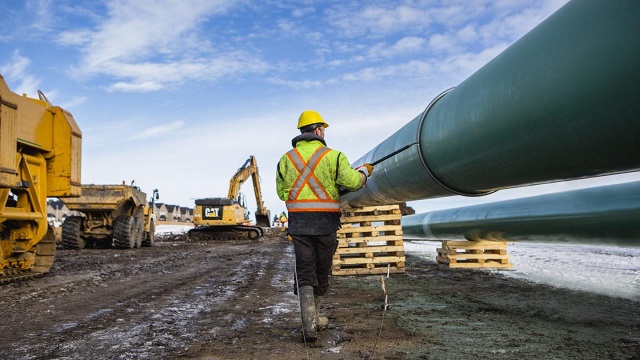
Photo courtesy Trans Mountain Corporation
From the Canadian Energy Centre
‘Now that the Trans Mountain expansion is finally completed, it will provide trans-generational benefits to First Nations involved’
While many are celebrating the completion of the Trans Mountain pipeline expansion project for its benefit of delivering better prices for Canadian energy to international markets, it’s important to reflect on how the project demonstrates successful economic reconciliation with Indigenous communities.
It’s easy to forget how we got here.
The history of Trans Mountain has been fraught with obstacles and delays that could have killed the project, but it survived. This stands in contrast to other pipelines such as Energy East and Keystone XL.
Starting in 2012, proponent Kinder Morgan Canada engaged in consultation with multiple parties – including many First Nation and Métis communities – on potential project impacts.
According to Trans Mountain, there have been 73,000 points of contact with Indigenous communities throughout Alberta and British Columbia as the expansion was developed and constructed. The new federal government owners of the pipeline committed to ongoing consultation during early construction and operations phase.
Beyond formal Indigenous engagement, the project proponent conducted numerous environmental and engineering field studies. These included studies drawing on deep Indigenous input, such as traditional ecological knowledge studies, traditional land use studies, and traditional marine land use studies.
At each stage of consultation, the proponent had to take into consideration this input, and if necessary – which occurred regularly – adjust the pipeline route or change an approach.
With such a large undertaking, Kinder Morgan and later Trans Mountain Corporation as a government entity had to maintain relationships with many Indigenous parties and make sure they got it right.
 Trans Mountain participates in a cultural ceremony with the Shxw’ōwhámél First Nation near Hope, B.C. Photograph courtesy Trans Mountain
Trans Mountain participates in a cultural ceremony with the Shxw’ōwhámél First Nation near Hope, B.C. Photograph courtesy Trans Mountain
It was the opposite of the superficial “checklist” form of consultation that companies had long been criticized for.
While most of the First Nation and Métis communities engaged in good faith with Kinder Morgan, and later the federal government, and wanted to maximize environmental protections and ensure they got the best deal for their communities, environmentalist opponents wanted to kill the project outright from the start.
After the government took over the incomplete expansion in 2018, green activists were transparent about using cost overruns as a tactic to scuttle and defeat the project. They tried to make Trans Mountain ground zero for their anti-energy divestment crusade, targeting investors.
It is an amazing testament to importance of Trans Mountain that it survived this bad faith onslaught.
In true eco-colonialist fashion, the non-Indigenous activist community did not care that the consultation process for Trans Mountain project was achieving economic reconciliation in front of their eyes. They were “fair weather friends” who supported Indigenous communities only when they opposed energy projects.
They missed the broad support for the Trans Mountain expansion. As of March 2023, the project had signed agreements with 81 Indigenous communities along the proposed route worth $657 million, and the project has created over $4.8 billion in contracts with Indigenous businesses.
Most importantly, Trans Mountain saw the maturing of Indigenous capital as Indigenous coalitions came together to seek equity stakes in the pipeline. Project Reconciliation, the Alberta-based Iron Coalition and B.C.’s Western Indigenous Pipeline Group all presented detailed proposals to assume ownership.
Although these equity proposals have not yet resulted in a sale agreement, they involved taking that important first step. Trans Mountain showed what was possible for Indigenous ownership, and now with more growth and perhaps legislative help from provincial and federal governments, an Indigenous consortium will be eventually successful when the government looks to sell the project.
If an Indigenous partner ultimately acquires an equity stake in Trans Mountain, observers close to the negotiations are convinced it will be a sizeable stake, well beyond 10 per cent. It will be a transformative venture for many First Nations involved.
Now that the Trans Mountain expansion is finally completed, it will provide trans-generational benefits to First Nations involved, including lasting work for Indigenous companies. It will also demonstrate the victory of good faith Indigenous consultation over bad faith opposition.
-

 Automotive2 days ago
Automotive2 days agoGovernments in Canada accelerate EV ‘investments’ as automakers reverse course
-

 Alberta2 days ago
Alberta2 days agoPharmacist-led clinics improve access to health care: Lessons from Alberta
-
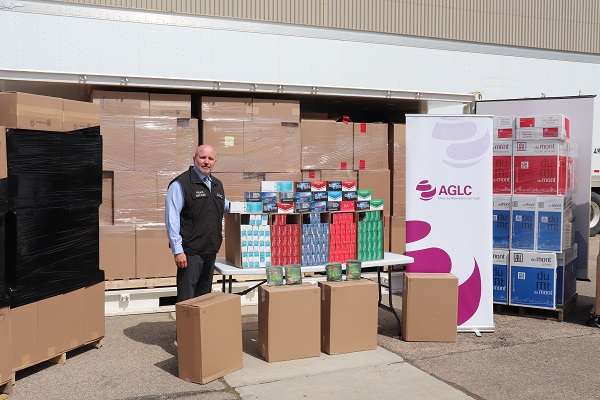
 Alberta2 days ago
Alberta2 days ago30 million contraband cigarettes valued at $25 million dollars seized in Alberta
-

 Automotive2 days ago
Automotive2 days agoRed States Sue California and the Biden Administration to Halt Electric Truck Mandates
-

 National2 days ago
National2 days agoTrudeau again blames ‘climate change’ for mostly man-made wildfires
-
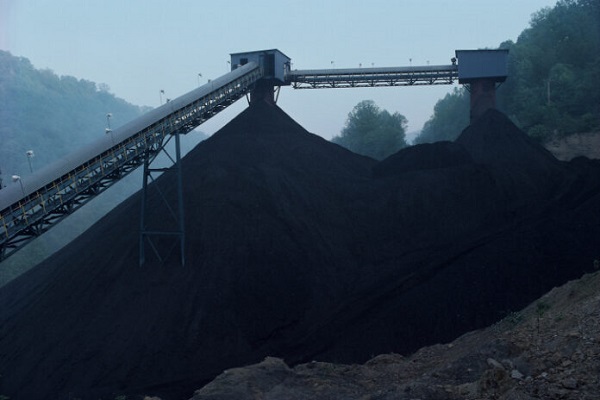
 Economy2 days ago
Economy2 days agoBiden signs suicidal ‘No Coal’ pact, while rest of world builds 1,000 new plants
-

 Canadian Energy Centre2 days ago
Canadian Energy Centre2 days agoTrans Mountain completion shows victory of good faith Indigenous consultation
-
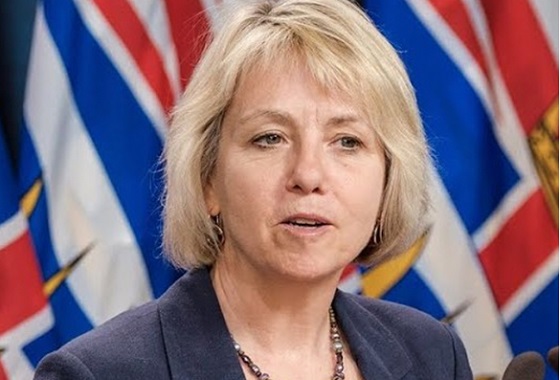
 COVID-192 days ago
COVID-192 days agoHealthcare workers obtain partial win against Bonnie Henry in BC Supreme Court






